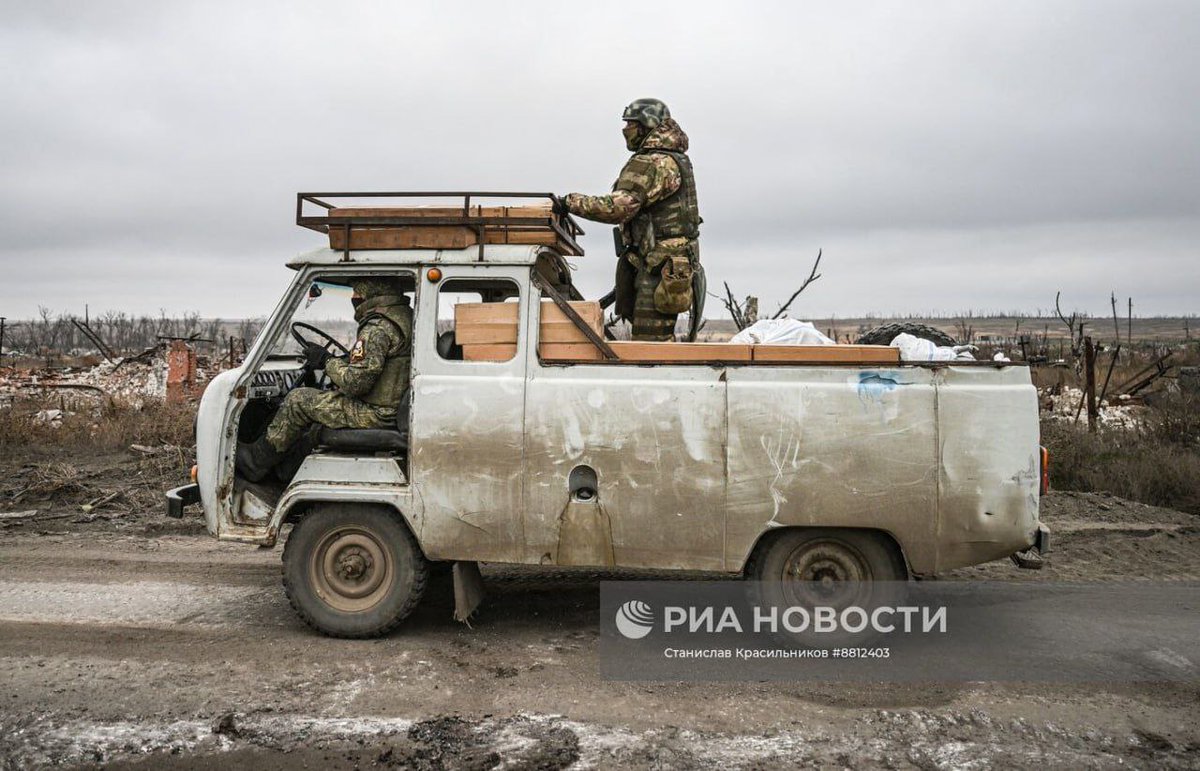1/ The equivalent of an entire regiment – more than 1,000 soldiers, including two lieutenant-colonels – has deserted from a single Russian division. The huge numbers highlight the normally well-hidden scale of desertions from the Russian army. ⬇️ 

2/ 'Important Stories' reports that the division has sent other commands a list of 1,010 people with a request to help find them. They include 858 contract soldiers, 150 mobilized soldiers and two conscripts, with 26 junior officers, one major and two lieutenant colonels.
3/ The Volgograd-based 20th Guards Motor Rifle Division is said to have the reputation of being one of the worst in Russia's army. Its men were sent into Ukraine in February 2022 on the pretext of Ukrainian forces massing on the border, which it soon became clear was a lie.
4/ As the operation dragged on, 60 out of 80 men from a single company deserted from the 33rd regiment. 15 soldiers from the 255th regiment were killed in the first month, 91 were wounded, and 151 deserted, according to an April 2022 report.
5/ On 9 July 2022, the entire command staff of the regiment died in a Ukrainian HIMARS strike on the airport at Chernobaivka. The division commander, Colonel Alexander Gorobets, his deputies, the chief of staff and the head of the operations department were all killed.
6/ Gorobets' replacement soon gained a reputation for treating his men abusively and corruptly. Humanitarian supplies brought for in civilians ended up being sold for profit. The new command staff were said to be uniformly "stupid and incompetent military men".
7/ A quarter of the division's soldiers, about 500 men, had died by the summer of 2022 and there were also numerous deserters. The numbers grew further after the Russian Ministry of Defence banned resignations from the army and extended military contracts indefinitely.
8/ At least 96 of the deserters were caught and tried for "leaving the unit without authorisation" by garrison courts. The number of cases across the Russian army has increased hugely and stood at nearly a thousand per month by July 2024 – equivalent to 40 cases per day.
9/ Most deserters are sent back to fight, many being assigned to assault units as punishment (with a high probability of being killed). According to court records, deserters usually plead that they needed to return home to look after sick relatives or children.
10/ More senior deserters may simply be forgiven: "you just return to the unit and we will pretend that you never disappeared." According to one man who fled the 20th division, its deputy commander for technical matters went missing for six weeks.
11/ It turned out that he and several accomplices had been stealing cars from local Ukrainians and taking them to Crimea to sell. The source says: "The division commander simply scolded him, and that was it."
12/ Soldiers often desert from hospitals where they are being treated for injuries after experiencing intense fighting. According to the group 'Go to the Forest', which helps deserters, there has been a surge in such cases since the spring of 2024.
13/ Men of the 255th regiment have complained on multiple occasions about their abusive treatment by their commanders, including being sent on 'meat assaults' without artillery support and being abandoned on the battlefield.
https://x.com/JayinKyiv/status/1632248557930422272
14/ The 20th Division is currently fighting in the Kurakhovo area of the Donetsk region. While its large number of deserters have undoubtedly caused some harm to its readiness, the military analyst @IanMatveev cautions against overestimating its effects.
15/ "1000 people, especially if these are not simultaneous losses, do not look like a critical problem for Russian units. For comparison: the Russian army loses about 1000 or even more soldiers at the front every day – killed and wounded."
16/ "But nevertheless, it continues the offensive."
Sources:
🔹 istories.media/stories/2024/1…
🔹 kavkazr.com/a/diviziya-nes…
Sources:
🔹 istories.media/stories/2024/1…
🔹 kavkazr.com/a/diviziya-nes…
• • •
Missing some Tweet in this thread? You can try to
force a refresh










